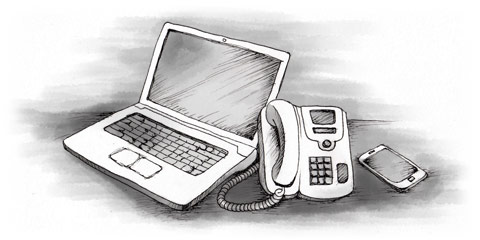To set up landline service, you need to go to the local branch of the Ministry's office. The registration process itself is simple and should only take a few minutes (although you might need a friend who speaks Arabic to help you out).
You'll need your Kuwait ID and a proof of residency. You'll also need 60 KD for the installation and subscription fees, plus an additional 5 KD stamp duty. Because all landline calls are free, you will only need to pay for yearly subscription to the service, which is about 30 KD.
Many Kuwaitis have complained about the poor quality of landline telephony service, the most common problem being dropped calls. However, in August 2010 Kuwait signed an agreement with two telecommunications companies which should improve and maintain infrastructure, making the service more reliable. This is expected to lead to the privatisation of landline telephony services in Kuwait.
International calling
When you sign up for landline service, you have the option to get an international plan for a 500 KD sign-up fee. International calls from Kuwait are not cheap, so this might be a good option if you plan to make a lot of calls abroad. Rates vary depending on the country you call, and you are sent a monthly bill.
If you don't want to purchase the government's international package, you can buy calling cards from a local supermarket. These cards usually cost between 3 and 10 KD.
Additional services
The Ministry of Communication offers some more specialised services, such as Caller ID, call waiting, three way conference calling, and even wakeup calls. Should you want these services, you can request them from the Ministry for a 15 KD installation fee and 10 KD annual fee.
Paying landline bills
To pay your landline bills, you can make payments to the Ministry of Communication at the bank or pay online.
The Ministry of Communication is pretty strict about paying bills on time, and if you go a month without paying, they will disconnect your landline (after appropriate warnings).


